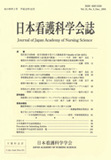Japanese
English
- 販売していません
- Abstract 文献概要
- 参考文献 Reference
- サイト内被引用 Cited by
要旨
本研究は,術前がん患者の感情と患者が知覚している支援ネットワークやHLOCとの関連を明らかにすることを目的とした.病名告知後,根治手術目的で入院した胃がん・食道がんの患者,計47名を対象者とした.内的,外的媒介因子の測定には支援ネットワーク尺度,JHLC(Japanese Version of Health Locus of Control)尺度を,感情の尺度にはPOMS(Profile of Mood States)尺度を用いた.その結果,情緒的支援ネットワークを知覚している対象者は「抑うつ─落込み」,「疲労」,「混乱」因子の感情が低く,手段的支援ネットワークは「活気」因子の感情を低くするので,術前がん患者には,「情緒的支援ネットワーク」を知覚できるような精神的援助を行うことが重要である.また,JHLCと感情との間には有意な相関が見られなかったが,本来患者が有している統制の所在が明確になるような環境づくりや接し方が重要であると考えられる.
Abstract
The authors studied the effect of the perception of support network and HLOC on the mood of the pre-operative patients. Forty-seven cases of gastric- or esophagus-cancer, who were hospitalized for radical surgery after being announced, were chosen as subjects of the study. For the rating of interior- or exterior intermediary factors scales of support network and JHLC (Japanese Version of Health Locus of Control) were used, and for the rating of the mood or states of mind the scale of POMS (Profile of Mood States) was used. The results show that in the subjects with positive perception of emotional support network relatively lower levels of the feelings of“depression slump”,“fatigue”or“confusion”factors were observed. Because an instrumental support network lowers the feeling controlled by“life”or“vigor”factor, it is important for the pre-operative patients that they are given such spiritual support as to encourage them to perceive the“emotional support network”. Though no significant correlation between JHLC and states of mood of the patients was observed, it will be significant to create a condition or take a way of contact which would make clear the existence of patients' inherent control.
Copyright © 2001, Japan Academy of Nursing Science. All rights reserved.


